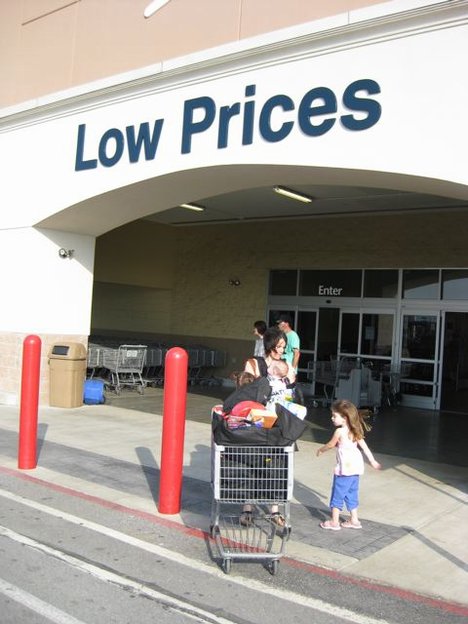 NEW DELHI (AFP) — The world's number one retailer Wal-Mart is set to open its first sales venture in India Saturday as part of an ambitious plan to establish a foothold in the country's vast consumer market.
NEW DELHI (AFP) — The world's number one retailer Wal-Mart is set to open its first sales venture in India Saturday as part of an ambitious plan to establish a foothold in the country's vast consumer market.
The US discount chain has teamed up with Bharti Enterprises, parent of India's biggest mobile firm Bharti Airtel, in a wholesale joint venture to be called Best Price Modern Wholesale.
The opening of Wal-Mart's first "big box" outlet in Amritsar city in the wheat-bowl northern state of Punjab, is a high-stakes one for the US retailer, which has been expanding internationally to grow its revenues.
"India is first of all a country with close to 1.2 billion people and a strongly growing economy which is driven by personal consumption," said Raj Jain, chief executive of Wal-Mart India.
"There's a need to start out on a learning curve with the Indian consumer and this is the first significant step in that direction," he told AFP.
But the entry of multinational retailers into India along with the growth of domestic mass merchandisers has been steeped in controversy amid fears they will drive the country's 15-million "mom-and-pop" outlets out of business.
Best Price will not be open to retail shoppers but will serve small stores, fruit and vegetable sellers, restaurants, hotels and other business outlets.
Under India's tight foreign investment rules, no overseas chains are permitted in the retail sector -- except for single-brand outlets such as Nokia or Reebok -- to protect local retail players.
Foreign groups such as Wal-Mart can only be wholesalers and must partner with domestic companies to enter the retail market, valued at 400 billion dollars and forecast to grow rapidly in the coming years.
Wal-Mart, which has weathered the global downturn better than rivals, aims to open 10 to 15 wholesale outlets measuring 50,000 to 100,000 square feet (4,650 to 9,300 square metres) over the next two to three years and employ around 5,000 people. It's hoping to build up a successful partnership with the mom-and-pop family stores -- which make up 95 percent of India's retail landscape -- that might lessen opposition to overseas retailers.
It's hoping to build up a successful partnership with the mom-and-pop family stores -- which make up 95 percent of India's retail landscape -- that might lessen opposition to overseas retailers.
"We're aiming to supply to mom-and-pop stores under one roof at outstanding prices," said Jain, a 27-year business veteran who joined Wal-Mart as president of emerging markets in 2006 and spearheaded its entry into India.
Merchants who source their products at Wal-Mart can expect discounts of around two percent on commodities such as grains and up to 20 percent on big-ticket merchandise, he said in an interview.
Opposition by small retailers to the entry of big foreign stores such as Wal-Mart has been key to the left-of-centre government's refusal to open up the sector to international chains.
Wal-Mart already has international operations in Argentina, Brazil, Canada, Chile, China, Costa Rica, El Salvador, Guatemala, Honduras, Japan, Mexico, Nicaragua and Britain.
But not all of its foreign expansion has been a success. In 2006, the company exited Germany and South Korea due to tough competition and poor sales.
"We hope they (the government) will slowly open foreign direct investment in retailing so large investments can flow into the supply chain, improving the infrastructure," Jain said.
Food wastage because of lack of proper storage and transport, for instance, "is 30 to 40 percent so modernisation is critical," he said.
But Jain said Wal-Mart recognised change in India had to be gradual.
"There's only a certain pace at which you can move and it can't be faster than people want. It's not going to happen in a hurry."
